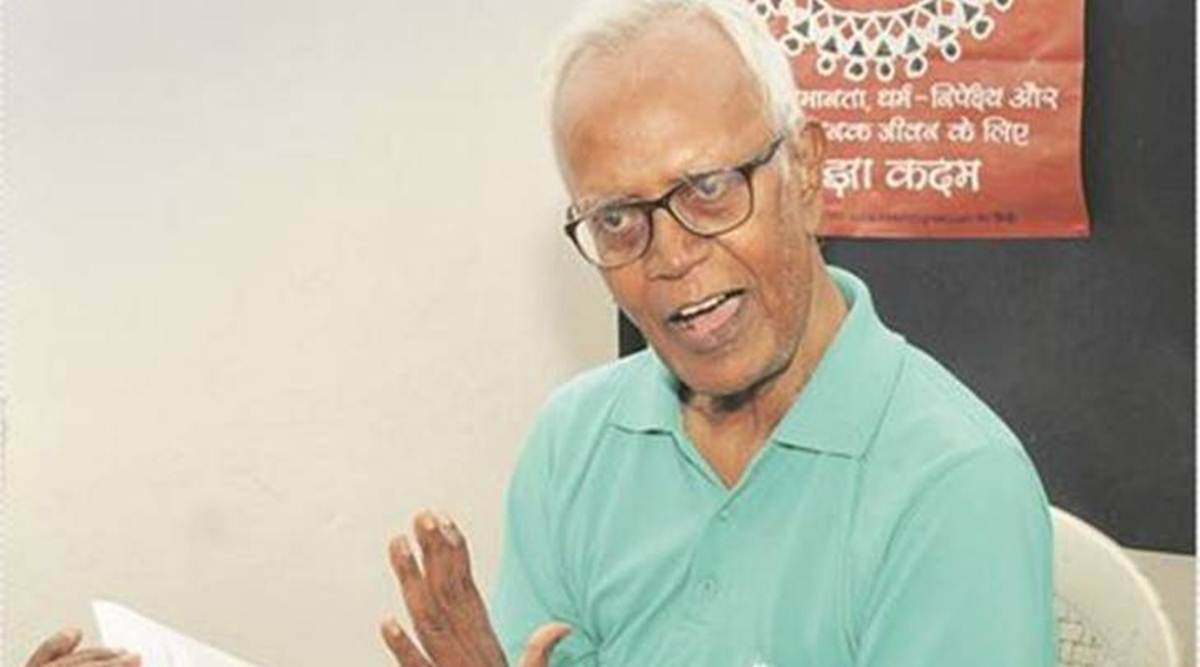July 11, 2021 3:46:20 am

Written by Dayamani Barla
2020 WAS A challenging year for the whole world with Covid-19 shaking the populace. At such a time, the arrest of 83-year-old human rights activist Father Stan Swamy on charges of terrorism was another assault on democratic rights by the Union government. His arrest was met with vociferous protests all over India and abroad by individuals and organisations who believe in democracy, freedom of expression and community rights.
I had never bothered to peruse the UAPA before. In 2019, I heard about the peculiarities of the Act for the first time when, in the Bhima Koregaon case, 16 people, including prominent social activists, journalists, lawyers, poets and intellectuals, were charged under this Act. As per the 2019 amendment in the UAPA 1967, the government can designate individuals too as terrorists. It was only after Father Stan’s arrest that we could understand the vile significance of this amendment.
Before 2014, we did not hear of social or human rights activists being charged with treason or terrorism, or being called urban Naxals. Under the BJP government in Jharkhand too, it became commonplace for leaders of public movements to be labelled anti-nationals, traitors.
For 30 years, Father Stan worked amongst tribals, indigenous people, Dalits and farmers of Jharkhand to protect their water, forests, land, environment and constitutional rights. In 2016, the BJP government proposed amendments in the Chhota Nagpur Tenancy and Santhal Parganas Tenancy Acts. It was Father Stan who created awareness among people about the two amendments and the Panchayats (Extension to Scheduled Areas) (PESA) Act, and how the rights enshrined in the Constitution were being infringed upon by government policies.
Father Stan also raised questions regarding the auctioning of coal blocks. He said that while these coal blocks were in tribal areas, tribals would gain little from the auctions. He underlined that it was the duty of the State to raise cooperative organisations and provide them resources like initial capital, technical and managerial expertise, and market linkages, so that tribal communities could prosper without leaving their lands.
Father Stan also undertook a detailed study of the projects started in Jharkhand, on completion of 12 years of its formation, and on the people displaced due to them. ‘Bagaicha’, the institution founded by him, would inform the marginalised about their rights, under the RTI, Forests Rights Act, Right to Food, and about government welfare schemes.
I remember the first time I saw Father Stan. It was during a lunch break in the course of a programme. He sat on a nearby table. I watched his hand wavering over his plate. It was several moments before with trembling fingers he tried to shape rice into a morsel, and raise it to his lips with difficulty. To drink water he grabbed the glass with both hands. I could never forget that moment.
Father Stan was also fighting for the 3,000-odd tribals in prison in Jharkhand for many years on trumped-up charges. He relentlessly talked about them in writings and public campaigns.
The arrest of activists over Bhima Koregaon, including Father Stan, is a conspiracy of the government to scare and weaken peoples’ organisations.
Just as Birsa Munda and his associates fighting for self-rule were murdered in prison by the British on June 9, 1900, Father Stan, a patient of Parkinson’s disease, died as he was kept imprisoned by the government from October 2020 to July 2021. The disease had left him debilitated, but he wasn’t provided even a straw in prison to have water and had to make a special submission in court.
A man who fought for the rights of the marginalised and oppressed breathed his last fighting the cruel system of this country. His was not an ordinary death but institutional murder and a blot on our judicial and administrative systems and on the conscience of our nation.
Dayamani Barla is a senior tribal rights activist from Jharkhand.
Translated by Arif Hussain, an independent researcher from Bihar
Suraj Yengde, the author of Caste Matters, curates the fortnightly Dalitality column
- The Indian Express website has been rated GREEN for its credibility and trustworthiness by Newsguard, a global service that rates news sources for their journalistic standards.

